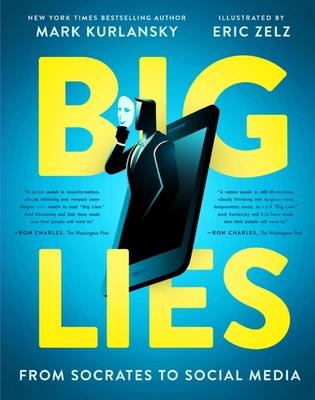The modern age has provided ever-more-effective ways of spreading lies, but it has also given us the scientific method, which is the most effective tool for finding what is true. In the book's final chapter, Kurlansky reveals ways to deconstruct an allegation. A scientific theory has to be testable, and so does an allegation.
BIG LIES soars across history: alighting on the "noble lies" of Socrates and Plato; Nero blaming Christians for the burning of Rome; the great injustices of the Middle Ages; the big lies of Stalin and Hitler and their terrible consequences; the reckless lies of contemporary demagogues, which are amplified through social media; lies against women and Jews are two examples in the long history of "othering" the vulnerable for personal gain; up to the equal-opportunity spotlight in America.
"Belief is a choice," Kurlansky writes, "and honesty begins in each of us. A lack of caring what is true or false is the undoing of democracy. The alternative to truth is a corrupt state in which the loudest voices and most seductive lies confer power and wealth on grifters and oligarchs. We cannot achieve a healthy planet for all the world's people if we do not keep asking what is true."
